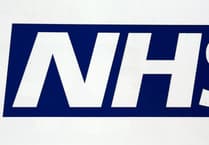Sir, – Your summary of the Guildford and Waverley PCT's five options for budget savings (January 6 issue) was most valuable. You quote the chief executive as talking about the changes "being in line with national developments which see healthcare provision moving away from acute hospital settings, towards more community-based care". Yet each option is about reducing beds in local community hospitals. So each option promises that "locally based services such as expanded community nursing and therapy teams would be in place". It is not clear how such teams would operate. If located in a building, this would have to be built or taken from another existing use, at a cost. Would many such little buildings really work out cheaper than the hospitals? Maybe these teams are meant to provide their service in people's homes. If so, there will be not only a travelling cost but also a loss of capacity. If you travel between different homes, you can't spend as much of your working day in face- to-face contact with patients. Has this loss of nursing/therapist capacity been costed in? Or is there an implicit assumption that such staff will be pressured into working longer, unpaid hours to "get round their patch", as happens with care workers? There is nothing wrong in seeking to improve how healthcare is delivered. But ideas for improvement are much better left to local teams of managers and health professionals, reflecting an organisational culture of "continuous improvement", rather than dreamed-up slogans from the health department. Take these ideas of "step-up" and "step-down" beds for example. Talk to the local professionals and they will tell you the real need in this area is for rehab beds. However, what bothers me about this whole exercise is that it is being done in an atmosphere of crisis and intense time pressure. Not a good recipe for well- formulated plans. And what exactly is the nature of this crisis? You report that "previous overspending has left a massive financial deficit of around £16 million" so "huge recurring savings" must be found. But a deficit results from the interaction of two variables, spending and income. "Income" in the case of the NHS is merely a figure arrived at by a formula which divides up a central pot of funds between parts of the NHS. Such a method works so long as there is not too much change. Over recent years, on top of the more challenging financial environment there have been distracting mergers of strategic health authorities and of primary care trusts and a major roll-out of practice-based commissioning. More changes are on the way as PCTs are further amalgamated. Then there is the shift, just beginning, towards funding for work actually done, ("payment by results") requiring providers to plan their income by predicting the mix and volume of types of different interventions/ procedures. More room here for mis-matches between income and expenditure. The Audit Commission is worried that "payment by results may destabilise NHS finances at local level. Primary care trusts (PCTs), the 300 local organisations that purchase hospital treatments, could face a funding shortfall if hospitals do more work than budgeted for. Hospitals, for their part, will run into trouble if they fail to get enough work or to control their costs". The crucial point for me is that expenditure reflects hugely the cost of staff and of supplies required to deal with whatever ill health walks through doctors' doors, and to do this within prescribed waiting-time targets. The scope for cost saving without impacting the delivery of service is very limited. And as a recent article in The Economist points out, "ministers have created a rod for the NHS's back by sanctioning excessively generous pay deals. New contracts for hospital consultants and family doctors are proving much more expensive than the government expected. Higher pay is swallowing up about half the increase in this year's cash budget, according to John Appleby, an economist at The King's Fund, a health-policy think-tank". What disturbs me about the current situation is the way PCTs are being portrayed as "failing to control their expenditure". Michael Cox is not alone I suspect in wondering "how the PCT has got into this state". My hunch is that this "state" is a reflection of too much change de-stabilising a very complicated process of matching centrally determined income with locally need-driven expenditure. Far from failing, the PCT is loyally (but perhaps inadvisedly) going along with a politically induced pressure to produce cost savings against a stupidly short deadline. The government, having revealed at the start of December that a quarter of the 566 constituent organisations of the NHS are forecasting a total deficit this year of £950m, has said that it will get the total deficit down to £200m by the year end. The NHS is sending in "turnaround teams" to try to "help" affected trusts. The "need" being addressed by all this is not "modernisation" but a wish to conceal the government's failure to allocate sufficient funds to cover the increased costs their own decisions have imposed. If service standards are not to suffer from rash decisions taken in this totally unnecessary atmosphere of crisis, it will probably in the end turn out to be because front-line staff, nurses and all the other health professionals, plug the gaps left by "savings" and pay the price themselves in increased stress. Tim Coldicott, Hamlash Lane, Frensham


